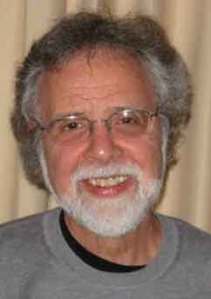by Nick Ferentinos
JEA Mentoring Committee
One of the challenges new teachers face is learning their school’s culture. For some, it’s a shock because the community is unlike their own school experience. Teachers are generally middle class, but they often find themselves in a school that has high poverty and a culture which is unfamiliar at best.
At the New Teacher Center’s annual Symposium in San Jose, Calif., this year, I attended a session called, “Leveraging the School Culture to Support New Teacher Mentoring.” The session was presented by Harry Ross, chair of the Department of Secondary Education at National-Louis University in Skokie, Il., and Steve Zemelman, who is the director of the Illinois Writing Project in Evanston. Their session was based on their book, “13 Steps to Teacher Empowerment: Taking a More Active Role in Your School Community.”
They focused on only six of steps in the time they had, but they gave me permission to share all 13, which I’ll do in two entries. This is the first. The following summaries are taken directly from their presentation and their handout summarizing the steps. After each step, I offer observations of my own.
Start with yourself. To make a difference, you need to feel good about yourself. Invest in your professional passions. Study new ideas about teaching. Reflect on your work and the school’s mission. Take care of your health and attitude.
This reminds me of Parker Palmer’s book, “The Courage to Teach,” in which he emphasizes that we strive to present our authentic self in the classroom. All my training and work in mentoring speaks to the power of reflecting on practice and modifying lessons as a consequence.
Understand the kids more deeply: Shadow a student. Follow a kid for a half-day or a day if possible. Focus on the student, not the teachers (you’re not evaluating colleagues), to see what a school is like. You’ll be surprised how much you discover. If other teachers can join in, compare notes and discuss implication for the classroom.
One of the most effective practices in mentoring is accompanying a mentee to observe a colleague, particularly an exemplary practitioner. Once, after I took a math teacher struggling with guiding group activities to see an English teacher who had mastered the practice, the math teacher exclaimed as we left, “That just changed my life.” He went on to become his math departments “go-to” teacher about using groups in math education.
 Understand the kids more deeply by looking inside the black box. Study your students and their learning. Consider what kind of information would help with your teaching. Do some investigating. Focus on something you care about and that matters for kids’ learning. Plan a practical strategy for gathering the information. Share results with colleagues.
Understand the kids more deeply by looking inside the black box. Study your students and their learning. Consider what kind of information would help with your teaching. Do some investigating. Focus on something you care about and that matters for kids’ learning. Plan a practical strategy for gathering the information. Share results with colleagues.
This is a difficult one for busy teachers, especially those just entering the profession. Nonetheless, it offers a good opportunity for action research, a valuable practice to add to your toolbox of strategies.
Connect with fellow teachers by opening the classroom door. Invite another teacher to visit your classroom or, better yet, visit each other. Talk over what each of you would like the other to watch. When debriefing, the observed teacher should lead the discussion. Smart schools set this up for everyone to do.
My former high school has recently developed a protocol for visiting colleagues’ classrooms. I haven’t seen it, but I know it’s a good idea for teachers to know what conversations to have before and after a classroom visit. Connect with fellow teachers by building bridges. Invite other teachers to visit your classroom, or better yet, visit each other.
Take action in your building by going “meta.” Teachers need time to reflect. Some keep regular journals. Analyze how to squeeze this into your schedule. Discuss plans or challenges together in “critical friends” sessions. (Ross and Zemelman like “reflective friends.”)
“Meta,” of course, means metacognitive or thinking about thinking or knowing about knowing. So little time in school is devoted to this most valuable of practices. Imagine if we asked students early on to think about their thought processes. It’s a challenge for a mentor sometimes to get a new teacher to step back and look at how their mind works. As mentors, our job is to help change that.
Take action by speaking up. Find your voice in meetings and committees, but do it strategically. Be clear on your goal. Consult other teachers and the principal to gain support and see what objections might come up. Avoid unproductive debates.
Most beginning teachers are reluctant to speak out in meetings for fear of being dismissed or rejected, but it’s something we want to encourage as a way of being a deeply-involved professional in the academic community. Mentors can encourage and support this practice by offering mentees the opportunity to role play what it might look like if the new teacher shared their thoughts with the colleagues.
[The second installment of “13 Steps to Teacher Empowerment” and Nick’s discussion will be posted in another post.]

